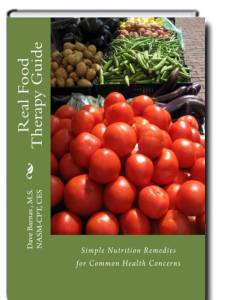 A client asked me a while ago if I could provide one suggestion for healthier eating that might have flown under the radar.
A client asked me a while ago if I could provide one suggestion for healthier eating that might have flown under the radar.
Based on a little bit of research, it seems like adding quinoa is a good idea. Here’s why:

Pronounced (KEEN-wah) , quinoa is a little known whole grain that was discovered about 5,000 years ago by the Incas. The Incas referred to quinoa as the mother of all grains. In modern times, research confirmed this ancient wisdom. In fact, the United Nations referenced to quinoa as a “super crop” for its potential to feed the world’s hungry and NASA found it to be the ideal food for long-duration flights. Even further, the National Restaurant Association named quinoa as the hottest trend in side dishes for 2010.
Although it is technically the seed of a large plant called Chenopodium quinoa, a distant relative of spinach, beets, and chard, the US classifies it as a whole-grain. Here’s why I’d recommend it:
- Quinoa is one of only a few plant foods that provide all the amino acids (protein building blocks) necessary for a “complete” protein. Studies show a half-cup of cooked quinoa makes more than 4 grams of protein.
- Quinoa is documented to reduce risk for stroke, type-2 diabetes, and heart disease.
- Quinoa supports weight management as it helps you feel fuller, longer.
- Quinoa ranks the highest among all grains in potassium (159 mg in half cup), associated with a beneficial effect for lowering blood pressure.
- Quinoa is high in iron and most B-vitamins, which is good for energy, hair and nails as well as the nervous system and circulatory system.
- Quinoa is a good source of zinc, a trace mineral beneficial to prostate gland and reproductive organs.
- Quinoa is a good source of copper, an essential mineral for metabolic processes in association with amino acids and vitamins.
- Quinoa is a good source of magnesium, a vital mineral to heart function.
- Quinoa is a good source of manganese, a trace mineral involved in various metabolic functions such as formation of connective tissue (like tendons and ligaments), blood sugar regulation, immune function and fat and carbohydrate metabolism.
The only downside is for those who need to reduce oxalate consumption due to risk for kidney stones. Quinoa does have oxalate, so consult with your physician or nutritionist if concerned.
Thank you for reading and best of health to you!
Did you get the free Real Food Therapy Guide yet? It is free to anyone interested in our Newsletter—click book cover and then scroll down.





One reply on “Why You Should Add Quinoa to Your Grocery List”
Thanks Dave!